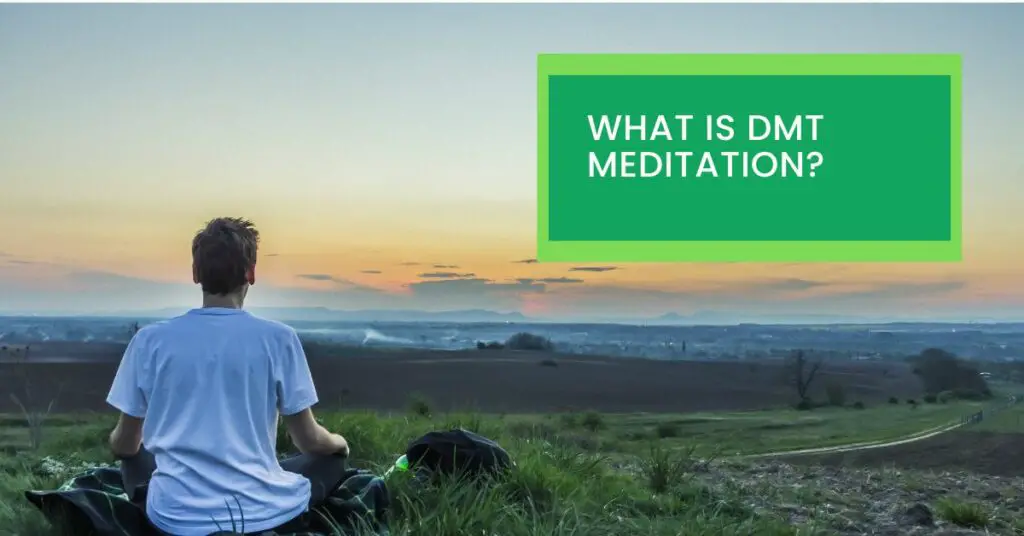Meditation is a powerful tool for reducing stress, increasing focus and helping to improve overall wellbeing. However, one of the most common side effects of meditating is feeling sleepy or drowsy during and after your session. This can be frustrating for people who are trying to use meditation as an energizing practice but it’s important to understand why this occurs in order to make the best out of your meditation sessions.
In this article we will discuss some possible reasons why meditation makes you sleepy and provide tips on how to stay awake while meditating.
Meditation can make you sleepy for a number of reasons. One reason is that the relaxation it provides can reduce stress and increase feelings of calmness, leading to sleepiness.
Additionally, when we meditate our bodies release endorphins which are calming hormones that may contribute to drowsiness. Finally, the lack of external stimulation while meditating can also cause us to become more drowsy as there is less input for our brains to process. As such, feeling sleepy during meditation is normal and nothing to be concerned about.

What causes you to feel sleepy during meditation?
Although there is no single answer to this question, here are some reasons why meditation can make you sleepy:
• Reduced stress levels – Meditation helps us relax and reduce the amount of stress we feel. This can lead to a feeling of drowsiness as our body and mind begin to unwind.
• Release of endorphins – As mentioned earlier, meditating causes our bodies to release calming hormones such as endorphins, which can make us feel tired and relaxed.
• Lack of external stimulation – When meditating there is often less input for our brains to process, which again may cause feelings of sleepiness.
• Deeper breathing pattern – During meditation we tend to focus on the breath and deepen our breathing pattern. This deeper and slower breath can cause feelings of drowsiness.
Is falling asleep during meditation related to your brain?
Yes, falling asleep during meditation is related to your brain. Falling asleep during meditation is often caused by the release of calming hormones such as endorphins and serotonin that can trigger drowsiness. Additionally, a lack of external stimulation or deeper breathing patterns may also cause feelings of sleepiness when meditating.
As such, it is important to remember that these effects are normal and nothing to be concerned about. However, if you find yourself struggling to stay alert during meditation, trying some of the tips mentioned above may help you remain focused and energized during your session.
Falling asleep during meditation is related to the parasympathetic nervous system. This part of our autonomic nervous system helps regulate bodily functions such as heart rate and respiration and is activated when we feel relaxed or sleepy. When we meditate, the parasympathetic nervous system becomes stronger, slowing down our breathing and heart rate and causing a heightened state of relaxation.
As we relax, our brain produces alpha brain waves which are associated with feelings of drowsiness and sleepiness. Alpha waves also help to reduce stress, improve concentration, facilitate creativity, boost memory and even induce lucid dreaming! Meditating can therefore be helpful in both calming down our bodies so that it can heal from stress-related illnesses as well as helping the mind to access deeper states of meditation.
At the same time, allowing ourselves to drift off into sleep during meditation can also be beneficial for our brain function as it gives our minds a chance to rest and recharge. If we find ourselves constantly worrying or ruminating about things, taking a few minutes to drift off into sleep during our meditation can help us to reset and come back with greater clarity.
However, if you are someone who finds themselves falling asleep during their meditations more often than not, it may be helpful to adjust your practice accordingly. You could try changing up your environment, getting up earlier or even doing dynamic movements such as walking meditations in order to stay more alert and gain more out of your practice.
Overall, meditation can be a great way to both relax and heal our bodies as well as improve brain function. Falling asleep during meditation is perfectly normal and many people actually find it beneficial but if you are finding yourself consistently dozing off, there are ways to adjust your practice so that you can gain more out of it. Happy meditating!
How to stay awake during meditation?
If you find yourself feeling sleepy or drowsy during your meditation, there are a few ways you can stay alert and make the most out of your session:
- Meditate in an upright position – Sitting up rather than lying down while meditating can help keep you more alert as the body is in an energizing state.
- Engage in dynamic movement – Doing a few minutes of stretching or other exercises before you begin meditating can help wake up the body and mind so that they’re less likely to drift off into sleepiness.
- Take short breaks throughout your session – During your meditation, it may be helpful to take short breaks throughout your session in order to stay more alert.
- Practice mindfulness – Instead of focusing on the breath or an external object, try to focus on your physical sensations and emotions as much as possible. This helps keep you present and less likely to drift off into sleepiness.
- Set a timer: Setting a timer for your meditation session can help you stay alert and focused during the practice. This will also ensure that you don’t get too caught up in the meditative state and drift off to sleep.
- Drink water: Keeping yourself hydrated during meditation can help to keep you awake by providing your body with essential nutrients and keeping it energized.
- Change your environment: Meditation in a bright, airy and stimulating space may keep you more alert than if you were in a dark, quiet room. This can help to stimulate your senses and prevent sleepiness.
- Move around: If you find yourself feeling sleepy or drowsy during meditation, try moving your body around or stretching. This will help to energize and wake you up, allowing you to continue with your practice.
- Choose an invigorating meditation: Doing more active meditations such as walking meditations or using mantras may help to keep you awake during the session. These types of practices are also a great way to focus on the present moment and gain clarity without getting too caught up in the mind’s chatter.
Overall, feeling sleepy during meditation is normal and nothing to be worried about – there are plenty of ways to stay alert during your session if it is something that bothers you. Remember to take breaks when needed and, most importantly, enjoy the journey!
Is it normal to feel sleepy during meditation?
Yes, it is normal to feel sleepy during meditation. Since the practice of meditation encourages relaxation and a slowing down of the breath pattern, these effects can often cause feelings of drowsiness or sleepiness. This is especially true if you are new to meditating or have been struggling to get into a deeper state during your session.
That being said, there are plenty of ways to counter this feeling so that you can stay awake and reap the full benefits of your practice! With some patience and practice, you will be able to find what works best for you in terms of staying alert during meditation without having to resort to stimulants or other artificial means.
Is feeling sleepy during meditation truly terrible?
No, feeling sleepy during meditation is not truly terrible. While it may be frustrating to feel like you are wasting time while meditating, these feelings of sleepiness are simply a part of the process and should not be seen as detrimental to your practice. Remember that it takes some time to get used to being still and silent for such a long period of time – this is totally normal and nothing to worry about! With some patience and practice, you will eventually find what works best for you in terms of staying alert during your session.
Are there any other tips on how to stay awake during meditation?
Yes, there are many other tips on how to stay awake during meditation. For example, you can try changing your environment or using more active forms of meditation.
Additionally, staying hydrated and taking regular breaks can also help to keep you alert during your practice.
Finally, if all else fails and you find yourself nodding off during the session, drinking a cup of coffee or tea may be just what you need for an energy boost! Remember – it takes time and patience to gain the full benefits of meditation, so don’t get discouraged when feeling sleepy periodically. With some experimentation and dedication, you will eventually find what works best for you in terms of staying alert during your session.
Conclusion
Meditation can be a wonderful way to relax and gain insight into yourself. While feeling sleepy during meditation is totally normal, there are plenty of ways to stay alert if it bothers you. Remember to take breaks when needed, experiment with different techniques, and don’t get discouraged if you find yourself nodding off periodically. With patience and practice, you will eventually find what works best for you in terms of staying awake during your session. Good luck!











